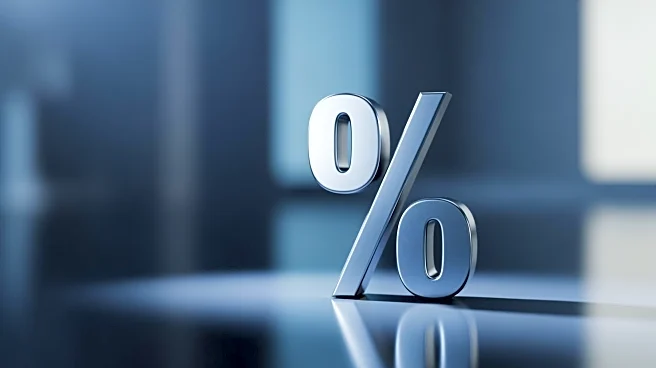What's Happening?
The Bank of Israel is expected to cut its benchmark interest rate after nearly two years of maintaining it at 4.5%. This decision comes as inflation is within the government's target range, currently at 2.5%,
with forecasts suggesting negative inflation rates for the remainder of 2025. The U.S. Federal Reserve has recently lowered interest rates, prompting speculation that Israel may follow suit to avoid widening the interest rate gap. However, political uncertainty, including the potential failure of the ultra-Orthodox military conscription bill and budget approval delays, poses challenges to this decision.
Why It's Important?
The anticipated interest rate cut by the Bank of Israel is crucial for stimulating economic growth, especially in the aftermath of recent conflicts. Lower rates could encourage borrowing and investment, providing a much-needed boost to the economy. However, political instability could undermine these efforts, leading to a transitional government and affecting economic policy continuity. The decision will impact consumers, businesses, and financial markets, particularly in terms of borrowing costs and currency exchange rates.
What's Next?
The Tel Aviv Stock Exchange is expected to react to the speculation of a rate cut, with potential movements in foreign exchange markets as well. The shekel may weaken against the dollar and euro, affecting import and export dynamics. The Bank of Israel's decision will be closely watched by financial institutions and policymakers, as they assess its implications for economic stability and growth.










